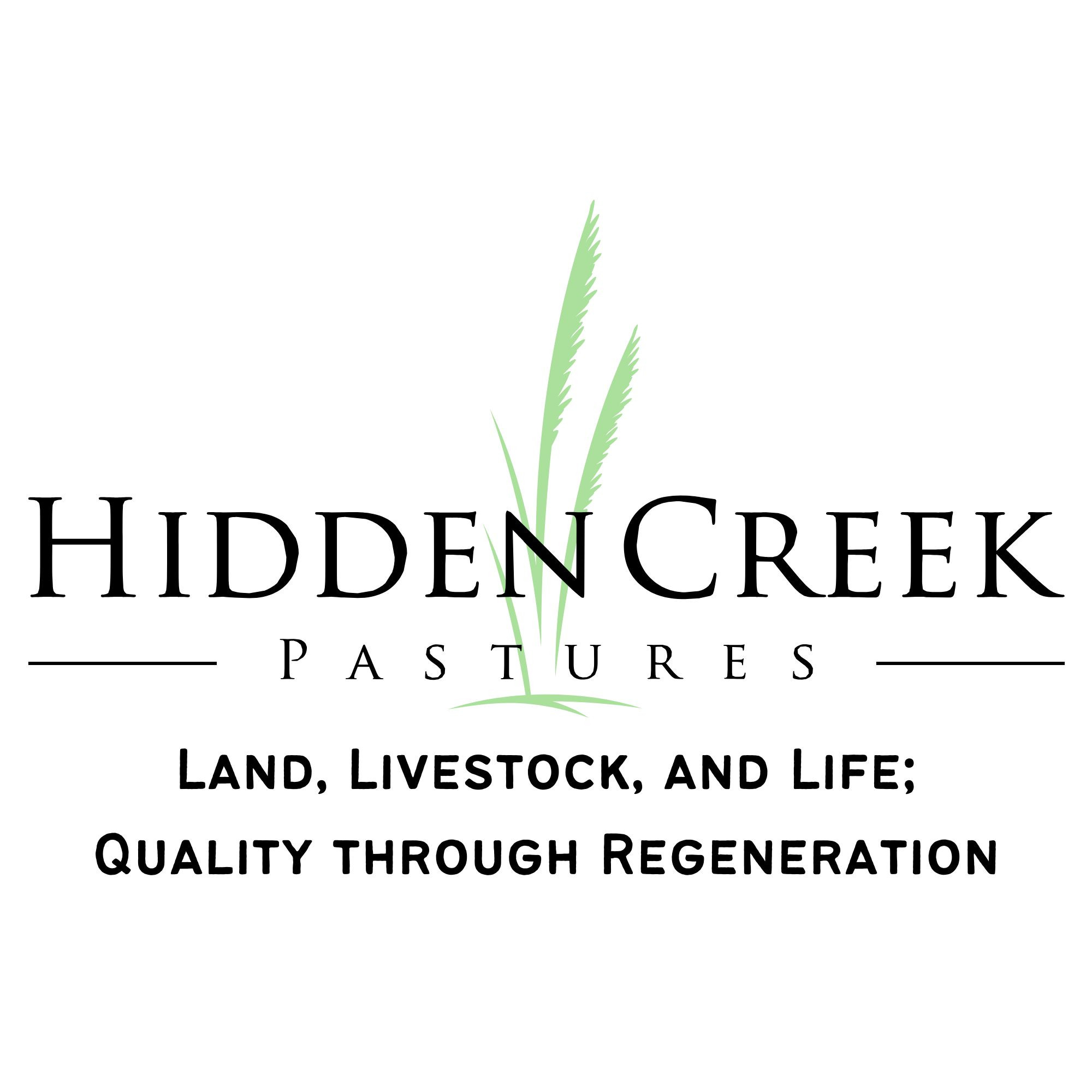Our Story
You could say that farming is in our blood, all three of the friends that eventually partnered together to form Hidden Creek Pastures have some connection to the lifestyle whether it was growing up on a farm or just a farm hand. Farming is addictive, don't dabble in it unless you want to spend the rest of your life doing it. Lifestyle was not the only reason for us to try and farm the way we are. I think each one of us had our own reasons for collaborating on this partnership, but we try to understand and bear each other’s burdens as best we can.Health; it’s a complicated subject and has taken many a person on long and difficult journeys. Some seem to find answers while others struggle for years to finally conclude they are incurable. We do not claim to have all the answers, but research coupled with experience plays a part in convincing everyone.
Environment is another inspiration for this venture as well. It is a concern that the general public may or may not care about but is brought up in politics and other important events, so when you are young and like to have questions answered it provides quite a challenge.
I will try to explain why health and environment are important to us and how we go about helping solve these issues.
Autoimmune diseases or cancer or so the doctors call them seem to have no cure, we speak from experience on this dealing with it ourselves or our family members. From trial and error and from research, and the experiences of others have led us down the route of diet. From our experience the cleaner or less processed our diet the healthier and higher quality life we can have. This is where Hidden Creek Pastures comes in. Our vision is to raise products, particularly meats, to the standard of quality that we can safely eat and enjoy.
At Hidden Creek, we use what we call regenerative farming practices. Regenerative farming is pretty much exactly what it sounds like. We only use practices that will improve our soil/environment or at least not be a detriment to it. In contrast is what we call conventional farming, under these practices farmers focus on getting top production, to get this they use a lot of fertilizers, fungicides, pesticides, herbicides, and other chemicals to control pests. The crops that are grown in these conditions are then fed to animals that are confined in small pens. The animals themselves are often injected with various things to control disease and sometimes even growth. In some scenarios animals have access to the outdoors, but due to poor management it is a mud lot instead of high quality pasture.Carbon emissions and fossil fuel usage are often quite high. It is these practices that give farming a bad reputation in environmentally aware circles.
In contrast, once again regenerative farming emphasizes the importance of working with nature, such as cattle eating grass themselves instead of having their feed brought to them. Disease in most cases is not an issue because animals have access to fresh pasture where they are not wallowing in their own excrement. With regenerative grazing we can build soil.
In addition to what I've said earlier, labeling can be confusing in mainstream supermarkets. Technically as long as a cow has access to the outdoors it can be labeled grass fed. This kind of integrity can be frustrating when choosing what products to purchase. What labels can you trust? This is why we at Hidden Creek Pastures promise the following.
- We will use regenerative farming practices and promote life at all levels not just harvestable products
- We will be honest with labeling grassfed is grassfed
- We will not sell products that have been treated with chemicals or antibiotics
- Our animals will be raised ethically and will be harvested as humanely as possible
